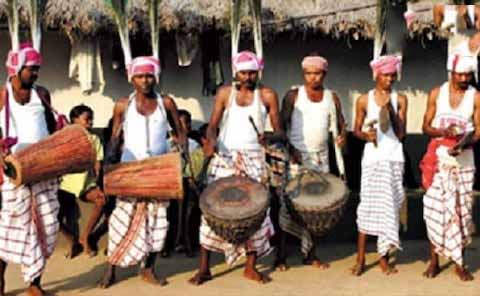
The exit polls showed the BJP and its led NDA as clear winners in Jharkhand, but the results were clearly opposite to this. The election results show that Hemant Soren, Jharkhand Mukti Morcha, and India Alliance have won a bumper victory there. The BJP could not impress the tribals even after putting in all its strength.
Before the elections in Jharkhand, the BJP raised the issue of love and land jihad with full vigor. They tried to polarize Hindus and Muslims but this card did not work as expected. They tried to use Champai Soren and Sita Soren as trump cards against JMS, but that too did not work.
The BJP left no stone unturned in its campaign in Jharkhand, with both Prime Minister Narendra Modi and Amit Shah holding live rallies. The party called its 'illegal immigration expert' Himanta Biswa Sarma from Assam to attack the Soren government for allowing 'infiltrators' from Bangladesh to come in. The BJP said in the rallies that Jharkhand's 'mati, beti aur roti' (land, soil, and bread) were in danger, adding that it was these 'infiltrators' who were snatching away water, land,, and forests from the Indigenous people of Jharkhand.
Last week, an election ad appeared in which Muslims were shown breaking into a Hindu's house and taking it over. The Election Commission asked the BJP to remove the ad.
While Soren, after coming out on bail, has run a campaign centered on tribal identity, these numbers are a testament to Jharkhand's identity politics and the power of the tribal vote in the state.
Tribals see the BJP as facing an identity crisis.
Jharkhand is identified as a tribal state. It is home to a large population of indigenous tribal communities who have a distinct cultural and historical identity. Many of these tribes have a deep connection to their land, traditions, and community-based systems.
The BJP, despite being a major national party, often faces challenges in connecting with this identity, especially because many tribal communities are wary of policies they feel could undermine their autonomy or lead to loss of land.
BJP's land and resources policies
The BJP is known to favor economic development policies that prioritize mining, industrialization, and infrastructure development, which can lead to displacement and loss of land for tribal communities. The party's stance on forest rights and land acquisition laws, which are important issues for the tribal population, has always created a sense of distrust among tribals about the BJP, who are skeptical about a possible grant of land rights.
Nationalism does not impress tribal voters.
Many tribal communities in Jharkhand are heavily dependent on social welfare schemes such as reservations in education and employment, as well as forest rights. The BJP's approach to these policies is sometimes seen as inadequate or insufficiently sensitive to the specific needs of these communities. The party's focus on nationalism rather than specific tribal concerns alienates it from tribal voters.
BJP does not have any effective tribal leaders in the state.
Of course, BJP made Draupadi Murmu, who belongs to the Santhal community of Odisha, the President, whose community is present in large numbers in Jharkhand, Champai Soren was included in BJP, but within BJP, there are no strong leaders who can show the impact of tribal leadership in the state.
Although the party has made efforts to nominate tribal leaders to key positions, these leaders do not have the same influence as the leaders of the Jharkhand Mukti Morcha, which has a long history of advocating tribal rights and issues.
BJP did not have a big leader from the tribal community who could stand against Hemant Soren. The tribals also did not like the change of party by leaders like Champai Soren, which weakened the position of the BJP
Competition from regional parties makes it difficult.
In Jharkhand, the JMM and other regional parties have established a strong base among the tribal population, which emphasizes local concerns such as land rights, autonomy, and cultural preservation. The BJP finds itself at odds with these established regional forces. These regional parties are more credible in addressing the specific needs of tribal communities.
BJP's national policies
The BJP's national policies, particularly those related to Hindu religious nationalism, are often viewed with suspicion by tribal communities who feel that their Indigenous beliefs and cultures may be marginalized. This has led to a sense of alienation among tribals towards the BJP.
The BJP raised the issue of Bangladeshi infiltration in its campaign on tribal issues, but this strategy was not effective in the tribal community. The tribals saw it as a threat to their identity and culture, which led to a negative perception of the BJP.
Soren's arrest also backfired
BJP tried to use Hemant Soren's arrest to its advantage, but this strategy backfired. People considered it a political ploy of the BJP. Soren was seen as a victim leader.
Tribal areas rejected the BJP by casting more votes.
This time the voting percentage was at a record level, most of the seats went in favor of JMM. Out of 26 reserved seats, JMM won 21, which shows that tribal voters rejected the BJP.

 Desk
Desk Share
Share

_939839210.jpg)




